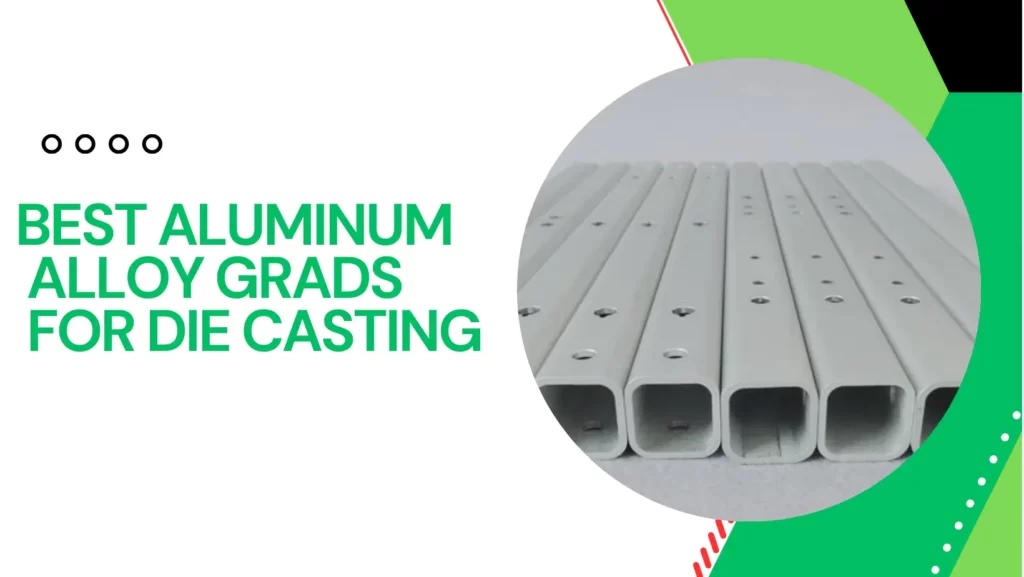Alcast Company Fundamentals Explained
Wiki Article
The 3-Minute Rule for Alcast Company
Table of ContentsIndicators on Alcast Company You Need To KnowAlcast Company for BeginnersAll about Alcast CompanyNot known Details About Alcast Company See This Report about Alcast CompanyAlcast Company Things To Know Before You Get This
Chemical Comparison of Cast Aluminum Alloys Silicon advertises castability by minimizing the alloy's melting temperature and improving fluidity during casting. Additionally, silicon adds to the alloy's stamina and use resistance, making it useful in applications where resilience is vital, such as automotive components and engine parts.It also boosts the machinability of the alloy, making it less complicated to refine into completed items. By doing this, iron adds to the overall workability of light weight aluminum alloys. Copper enhances electrical conductivity, making it advantageous in electrical applications. It likewise boosts rust resistance and adds to the alloy's overall toughness.
Manganese adds to the strength of light weight aluminum alloys and improves workability (aluminum casting company). It is typically utilized in wrought aluminum products like sheets, extrusions, and profiles. The presence of manganese aids in the alloy's formability and resistance to breaking during construction processes. Magnesium is a lightweight aspect that provides strength and effect resistance to light weight aluminum alloys.
Alcast Company Can Be Fun For Everyone
It enables the manufacturing of lightweight elements with excellent mechanical homes. Zinc boosts the castability of aluminum alloys and helps regulate the solidification process throughout casting. It enhances the alloy's stamina and solidity. It is commonly discovered in applications where intricate forms and great details are necessary, such as decorative castings and specific automotive parts.
The primary thermal conductivity, tensile toughness, return stamina, and prolongation differ. Among the above alloys, A356 has the greatest thermal conductivity, and A380 and ADC12 have the lowest.
Facts About Alcast Company Revealed

In precision casting, 6063 is well-suited for applications where complex geometries and top quality surface area coatings are extremely important. Examples consist of telecommunication enclosures, where the alloy's premium formability permits sleek and aesthetically pleasing styles while preserving architectural stability. Similarly, in the Illumination Solutions market, precision-cast 6063 parts create stylish and efficient illumination components that require intricate shapes and excellent thermal performance.
It brings about a finer surface coating and much better deterioration resistance in A360. In addition, the A360 shows remarkable elongation, making it ideal for complex and thin-walled components. In accuracy casting applications, A360 is well-suited for sectors such as Customer Electronic Devices, Telecommunication, and Power Tools. Its boosted fluidness enables for complex, high-precision components like smartphone cases and interaction gadget housings.
Everything about Alcast Company
Its distinct residential properties make A360 a useful selection for accuracy casting in these industries, boosting product resilience and high quality. Light weight aluminum alloy 380, or A380, is a commonly used spreading alloy with numerous distinct characteristics. It provides outstanding castability, making it an excellent selection for accuracy casting. A380 shows great fluidity when molten, ensuring intricate and detailed molds are properly recreated.
In precision spreading, light weight aluminum 413 shines in the Customer Electronic Devices and Power Tools industries. This alloy's superior rust resistance makes it an outstanding option for outside applications, ensuring resilient, sturdy products in the discussed markets.
The smart Trick of Alcast Company That Nobody is Discussing
The light weight aluminum alloy you select will substantially impact both the casting process and the buildings of the last product. Because of this, you should make your choice thoroughly and take an educated technique.Establishing the most ideal light weight aluminum alloy for your application will imply weighing a vast array of features. The initial classification addresses alloy attributes that impact the production procedure.
The smart Trick of Alcast Company That Nobody is Talking About
The alloy you pick for die spreading directly impacts several elements of the spreading procedure, like just how simple the alloy is to function with and if it is susceptible to casting problems. Warm breaking, also called solidification splitting, is a regular die spreading defect for aluminum alloys that can result in inner or surface-level splits or cracks.Particular aluminum alloys are much more vulnerable to hot fracturing than others, and your option should consider this. An additional typical flaw found in the die casting of aluminum is die important site soldering, which is when the actors stays with the die wall surfaces and makes ejection challenging. It can harm both the actors and the die, so you should look for alloys with high anti-soldering properties.
Corrosion resistance, which is already a significant attribute of aluminum, can vary significantly from alloy to alloy and is a vital particular to think about relying on the ecological problems your product will certainly be subjected to (Aluminum Casting). Put on resistance is an additional building frequently sought in aluminum products and can differentiate some alloys
Report this wiki page